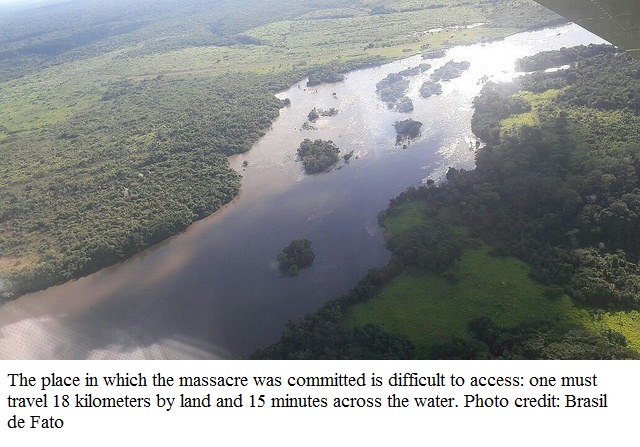Massacre in a Peasant Settlement in Inland Brazil: Nine Dead
Nine were murdered in Mato Grosso precisely in the week in which we remember the massacre of Eldorado dos Carajás.
The Ministry of Public Safety of Mato Grosso confirmed the death of nine settlers of the Taquaruçu do Norte settlement, located near the Guariba district, in the city of Colniza, 1,065 kilometres from the capital of the state, Cuiabá.

Reports were sent to the Ministry by a group of military police and civilians who went to the location of the massacre. The murders took place over the last week and the bodies are still being identified.
According to the Communication department of the Ministry, the settlement is located near the border with the state of Rondônia, in a region that is hard to access for transport and communication. To reach the place of the massacre one has to travel 18 kilometres by land and 15 minutes by boat.
Preliminary reports sent to the Ministry—according to the article published on its website—indicate that hooded people invaded the land and murdered a group of people. According to information that reached the Colniza Police Department and was later confirmed by the Ministry, all victims are adult men.
According to the Ministry, the group of military police and civilians that gathered information reached the municipality of Guariba on Thursday (20) night and after speaking to relatives of the victims, confirmed the deaths of five adult men. On Friday (21), three more deaths were confirmed and then another body was found, totaling nine deaths.
This massacre took place in the week in which Brazil’s peasants remember the massacre of Eldorado dos Carajás, where 21 members of the Movement of Landless Rural Workers (MST) were killed by military police in Pará, on April 17, 1996.
Solidarity
In a press release on the tragedy, the MST recalled the death of Josías Paulino de Castro and Irani da Silva Castro, two years ago. Both were peasant leaders of the municipality, and they were murdered two days after denouncing threats against their lives to the national ombudsman of the National Institute of Agrarian Reform (INCRA). “Matto Grosso cries because there are other death threats waiting to come true, and nothing is being done to prevent new tragedies”, the communiqué reads.
In a meeting of the Prelature of São Félix do Araguaia (Mato Grosso), attended by Bishop Adriano Ciocca Vasino and Bishop Emeritus Pedro Casaldáliga, also pronounced itself against these murders and expressed its solidarity with the families of Gleba Taquaruçu.
“This massacre occurs in a historical context of usurpation of political power through an institutional coup, with very serious attacks against the fundamental rights of the Brazilian people, which effectively puts President Temer in a position of war against the poor,” they stated.
